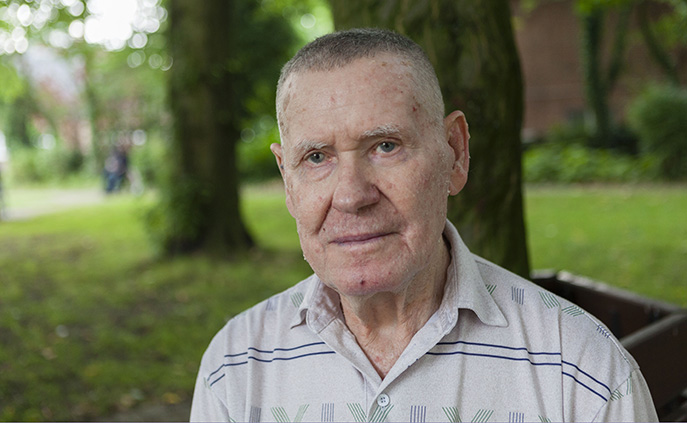[Translate to English:] Was ist Demenz?

What is dementia?
The word "dementia" is used when a range of symptoms are seen. These include:
- Decline in mental performance (especially short-term memory)
- Personality change
- finding it increasingly difficult to cope with everyday life independently (loss of everyday skills and cognitive abilities)
What are the causes and symptoms?
Symptoms can vary in severity (mild, moderate and severe dementia) and are not the same in all individuals. Dementia progresses at a slow rate and lasts longer than six months. Most dementia diseases (primary dementia) cannot be cured.
Such include:
- Alzheimer's disease: this is the most common form or cause of dementia, accounting for approximately 60% of cases. When you have Alzheimer's disease, more and more nerve cells in the brain die. Under the microscope, deposits (amyloid plaques) and clumps (neurofibrillary bundles) can be seen in the patient’s brain.
- Vascular dementia: The cause of this is circulatory disorders in the brain. Because blood vessels become blocked or constricted, the nerve cells are no longer supplied properly. This leads to minor strokes that damage the nerve cells over longer periods of time.
- Dementia diseases that are less common, such as Frontotemporal dementia (FTD) and Lewy body dementia (LBD). In 10% of patients, mental impairment is caused by other reasons. These can be: metabolic diseases (e.g. hypothyroidism), tumours, deficiencies (vitamins, folic acid, etc.) or undesirable side effects of medication. Acute depression can also trigger similar symptoms to dementia. If treatment is given in time, the symptoms will also stop. It is important to get an accurate diagnosis so that any diseases that can be treated are excluded.
Further Information
- What is dementia (Was ist Demenz?), Dementia Australia
- Information about dementia (Informationen zum Krankheitsbild „Demenz“), Netzwerk Demenz Ravensburg
- Alzheimer's disease (Die Alzheimer-Krankheit), Dementia Australia
- Lewy-Body-dementia (Demenz mit Lewy-Körperchen), Dementia Australia
- Vascular dementia (Vaskuläre Demenz), Dementia Australia
- Frontotemporal dementia (Frontotemporale Demenz), Dementia Australia



